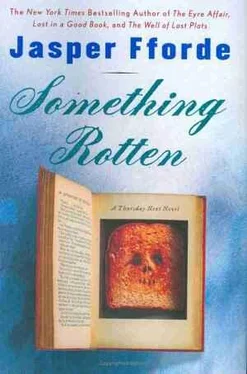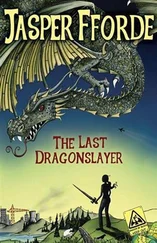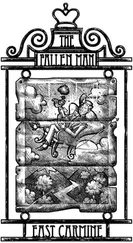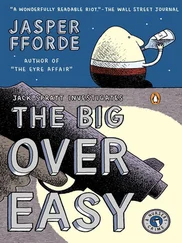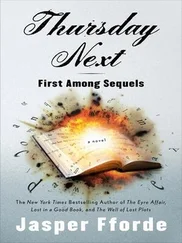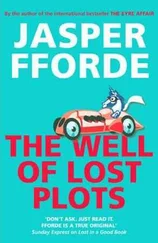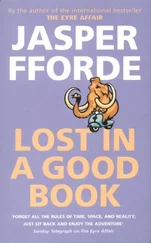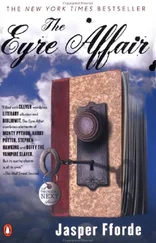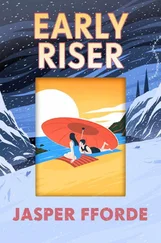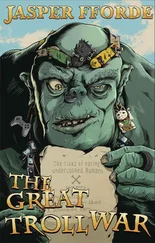'Not that easy, Cat. Take a look at this.'
I showed him the latest issue of The Toad . The Cat carefully put on his spectacles and read: 'Danish book-burning frenzy reaches new heights with Copenhagen-born Farquitt's novels due to be consigned to flames.'
'I don't get it,' said the Cat, placing a yearning paw on a Moggilicious Cat Food advert, 'what's he up to burning all her books?'
'Because,' I said, 'he obviously can't find all the original copies of At Long Last Lust and in desperation has whipped up anti-Danish feeling as a cover. With luck his book-burning idiots will do the job for him. I'm a fool not to have realised. After all, where would you hide a stick?'
There was a long pause.
'I give up,' said the Cat, 'where would you hide a stick?'
'In a forest.'
I stared out of the window thoughtfully. At Long Last Lust . I didn't know how many of the hundred copies still remained, but with Farquitt's books still being consigned to the furnaces I figured there had to be at least one. An unpublished Farquitt novel the key to destroying Kaine. I couldn't make this stuff up.
'Why would you hide a stick in a forest?' asked the Cat, who had been pondering this question for some moments in silence.
'It's an analogy,' I explained. 'Kaine needs to get rid of every copy of At Long Last Lust but doesn't want us to get suspicious, so he targets the Danes — the forest - rather than Farquitt — the stick . Get it?'
'Got it.'
'Good.'
'Well, I'd better be off, then,' announced the Cat, and he vanished.
I was not much surprised at this for the Cat usually left in this manner. I poured the tea, added some milk and then put some mugs on a tray. I was just pondering where I might find a copy of At Long Last Lust and, more importantly, thinking of calling Julie again to ask her how long her husband flicked on and off 'like a light bulb' when the Cat reappeared balanced precariously on the Kenwood mixer.
'By the by,' he said, 'the Gryphon tells me that the sentencing for your fiction infraction is due in two weeks' time. Do you want to be present?'
This related to the time I had changed the ending to Jane Eyre . They found me guilty at my trial but the law's delay in the BookWorld just dragged things on and on.
'No,' I said after a pause. 'No, tell him to come and find me and let me know what my sentence will be.'
'I'll tell him. Well, toodle-oo,' said the Cat, and vanished, this time for good.
I pushed open the door of Mycroft's workshop with my toe, held it open for Pickwick to follow me in, then closed it before Alan could join us and placed the tray on a worktop. Mycroft and Polly were staring intently at a small and oddly shaped geometric solid made of brass.
'Thank you, pet,' said Polly. 'How are things with you?'
'Fair to not very good at all, Auntie.'
Polly was Mycroft's wife of some forty-two years and although seemingly in the background was actually almost as brilliant as her husband. She was a bouncy seventy and managed Mycroft's often irascible and forgetful nature with a patience that I found inspiring. 'The trick,' she told me once, 'is to regard him like a five-year-old with an IQ of two hundred and sixty.' She picked up her tea and blew on it.
'Still thinking about whether to put Smudger on defence?'
'I was thinking of Biffo, actually.'
'Smudger and Biffo would both be wasted on defence,' muttered Mycroft, making a fine adjustment on one face of the brass polyhedron with a file. 'You ought to put Snake on defence. He's untried, I admit, but he plays well and has youth on his side.'
'Well, I'm really leaving team strategy to Aubrey.'
'I hope he's up to it. What do you make of this?'
He handed me the solid and I turned the grapefruit-sized object over in my hands. Some of the faces were odd sided and some even sided — and some, strangely enough, appeared to be both . My eyes had trouble making sense of it.
'Very . . . pretty,' I replied. 'What does it do?'
'Do?' Mycroft smiled. 'Put it on the worktop and you'll see what it does!'
I placed it on the surface but the oddly shaped solid, unstable on the face I had placed it upon, tipped on to another. Then, after a moment's pause, it wobbled again and fell on to a third. It carried on in this jerky fashion across the worktop until it fell against a screwdriver, where it stopped.
'I call it a Nextahedron,' announced Mycroft, picking up the solid and placing it on the floor, where it continued its random perambulations, watched by Pickwick, who thought it might be chasing her, and ran away to hide. 'Most irregular solids are only unstable on one or two faces. The Nextahedron is unstable on all its faces — it will continue to fall and tip until a solid object impedes its progress.'
'Fascinating!' I murmured, always surprised by the ingenuity of Mycroft's inventions. 'But what's the point?'
'Well,' explained Mycroft, warming to the subject, 'you know those inertia! generator things that self-wind a wristwatch?'
'Yes?'
'If we have a larger one of those inside a Nextahedron weighing six hundred tons, I calculate we could generate as much as a hundred watts of power.'
'But. . . but that's only enough for a light bulb!'
'Considering the input is nil, I think it's a remarkable achievement,' replied Mycroft somewhat sniffily. 'To generate significant quantities of power we'd have to carve something of considerable mass — Mars, say — into a huge Nextahedron with a flat plate falling around the exterior, held firm by gravity. The power could be transmitted to earth using Tesla beams and . . .'
His voice trailed off as he started to sketch ideas and equations in a small notebook. I watched the Nextahedron fall and rock and jiggle across the floor until it fell against a roll of wire.
'On a more serious note,' confided Polly, putting down her tea, 'you could help us identify some of the devices in the workshop. Since both Mycroft and I have taken the Big Blank you might be able to help.'
'I'll try,' I said, looking around the room at the bizarre devices. 'That one over there guesses how many pips there are in an unopened orange, the one with the horn is an Olfactrograph for measuring smells, and the small box thing there can change gold into lead.'
'What's the point of that?'
'I'm not entirely sure.'
Polly made notes against her inventory and I spent the next ten minutes trying to name as many of Mycroft's inventions as I could. It wasn't easy. He didn't tell me everything.
'I'm not sure what this one is, either,' I said, pointing at a small machine about the size of a telephone directory lying on a workbench.
'Oddly enough,' replied Polly, 'this is one we do have a name for. It's an ovinator.'
'How do you know if you can't remember?'
'Because,' said Mycroft, who had finished his notes and now rejoined us, 'it has "ovinator" engraved on the case just there. We think it's either a device for making eggs without the need of a chicken, or for making chickens without the need of an egg. Or something else entirely. Here, I'll switch it on.'
Mycroft flicked a switch and a small red light came on.
'Is that it?'
'Yes,' replied Polly, staring at the small and very unexciting metallic box thoughtfully.
'No sign of any eggs or chickens,' I observed.
'None at all.' Mycroft sighed. 'It might just be a machine for making a red light come on. Drat my lost memory! Which reminds me: any idea which device actually is the memory eraser?'
We looked around the workshop at the odd-looking and mostly anonymous contraptions. Any one of them may have been used to erase memories, but then any one of them may have been a device for coring apples, too.
Читать дальше
